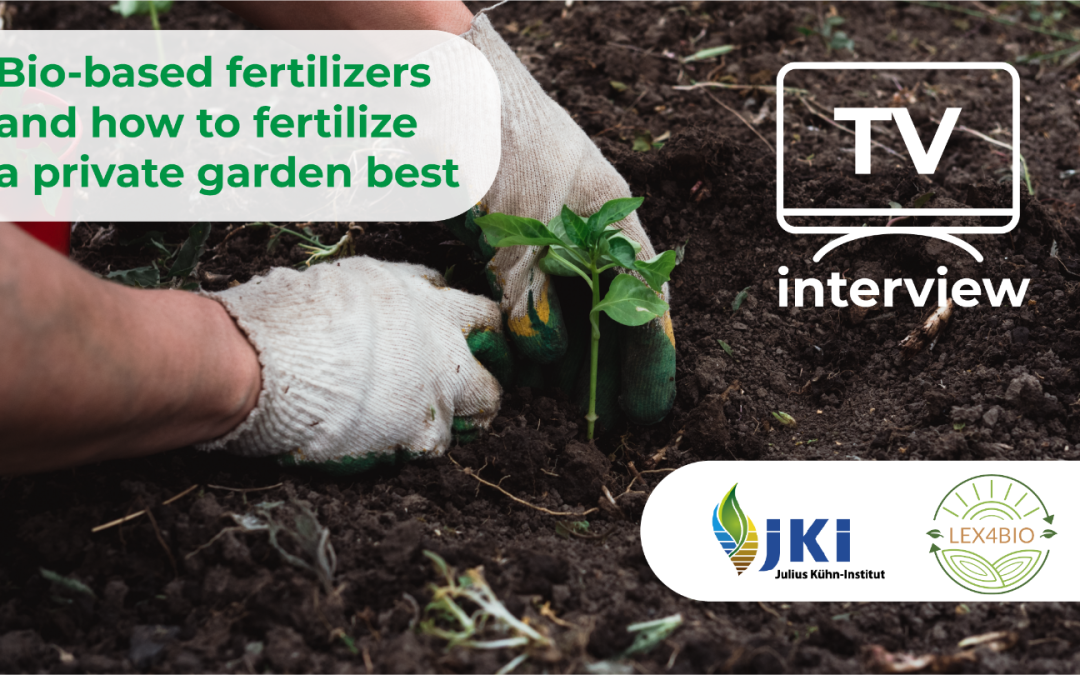The scientists in Lex4Bio project analyzed a set of different bio-based fertilizers of different origin and processing for different contaminations. These activities caught the attention of a TV team from the German program WISO who were interested to learn which bio-based fertilizers were advisable to be used in private gardening and what were the advantages in relation to mineral fertilizers.
The interview was focused on what contaminations can be expected in the different fertilizers that are available on the market for consumers. So, from the very start a point was made that “bio-based” is not an equivalent to free of contamination but is referring to organic secondary raw materials that can be used to produce fertilizers, such as plant or food residues, products derived from animals, sewage sludge, bio-wastes or organic wastes of industrial origin. Depending on the origin of the material, different contaminants can be expected in bio-based fertilizers, and so as in mineral fertilizers. Quite often, the description of input materials on products is rather vague and it is not clear if animal-derived products are derived from conventionally grown animals or from organic farming. It is not unusual for animal-derived fertilizers to show traces of antibiotics in the final product while plant-based or ash-based products could turn out to be free of antibiotics but can contain other compounds such as pesticides or heavy metals. The advantages of organic fertilizers for improving soil life, water holding capacity and its function as slow releasing fertilizers were highlighted during the interview.
In conclusion, it was argued that the question is less of whether organic fertilizers should substitute mineral fertilizers and more of observing the best strategy to do so in order to achieve circular economy. Rock phosphate fertilizers are based on finite resources increasingly contaminated by heavy metals such as cadmium and uranium. Europe has only limited rock phosphate resources and is dependent on its import. Therefore, it is indispensable to implement bio-based fertilizers, to improve nutrient recycling for a sustainable agricultural production and to meet the demand of future generations.
Follow Lex4Bio on LinkedIn, Twitter and Facebook to watch the interview when it becomes available.

